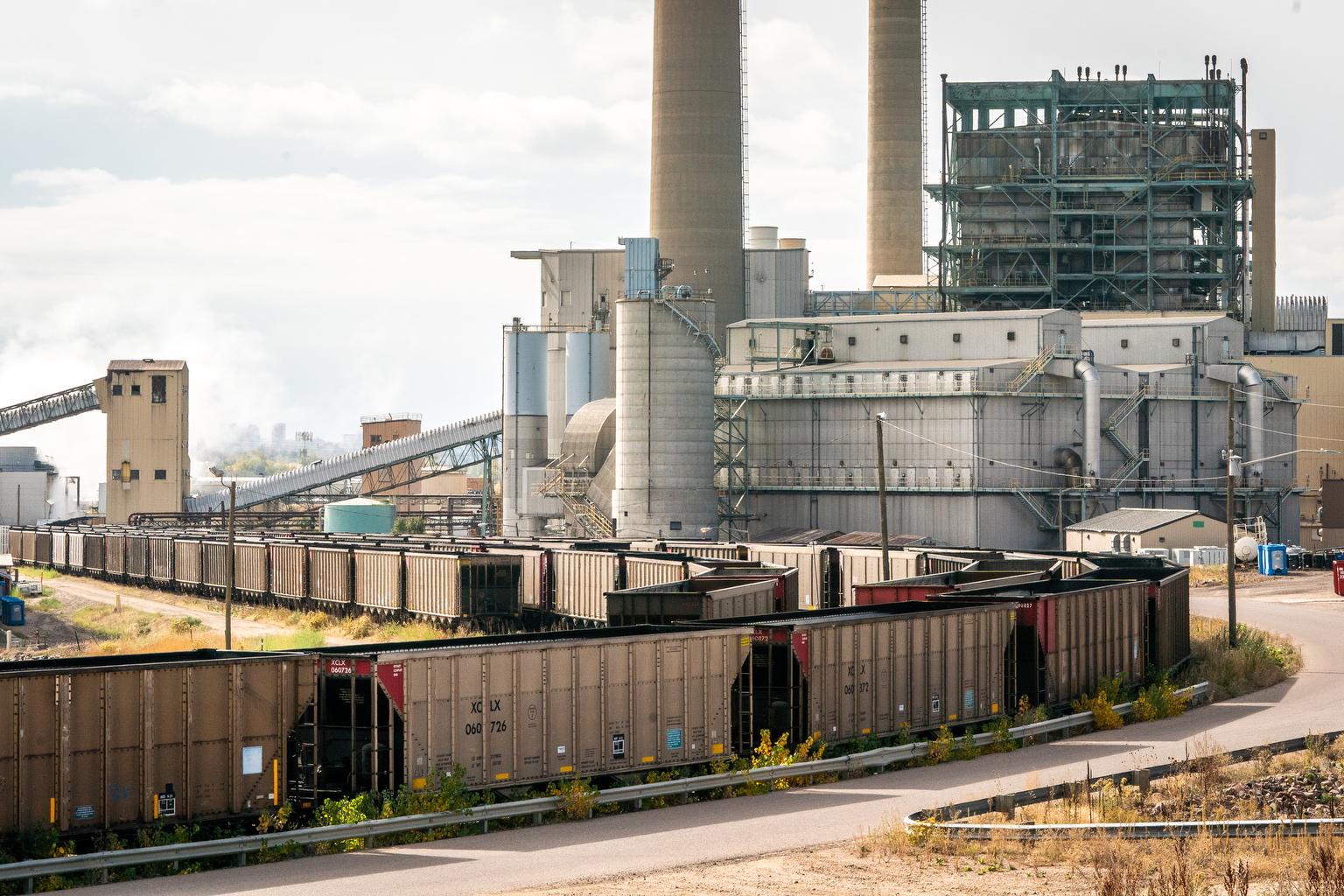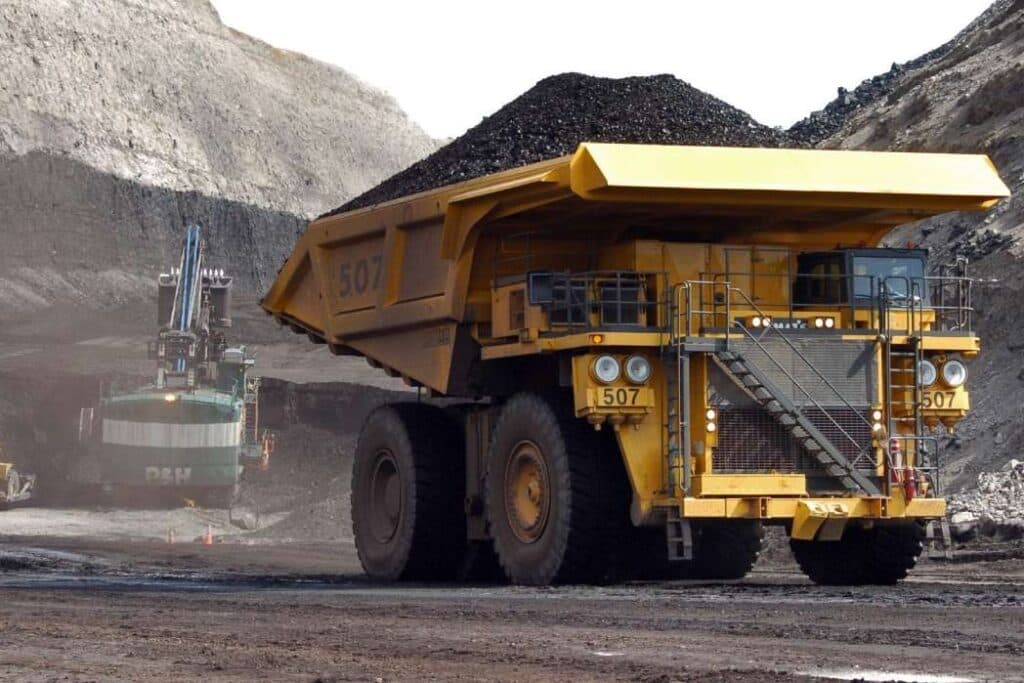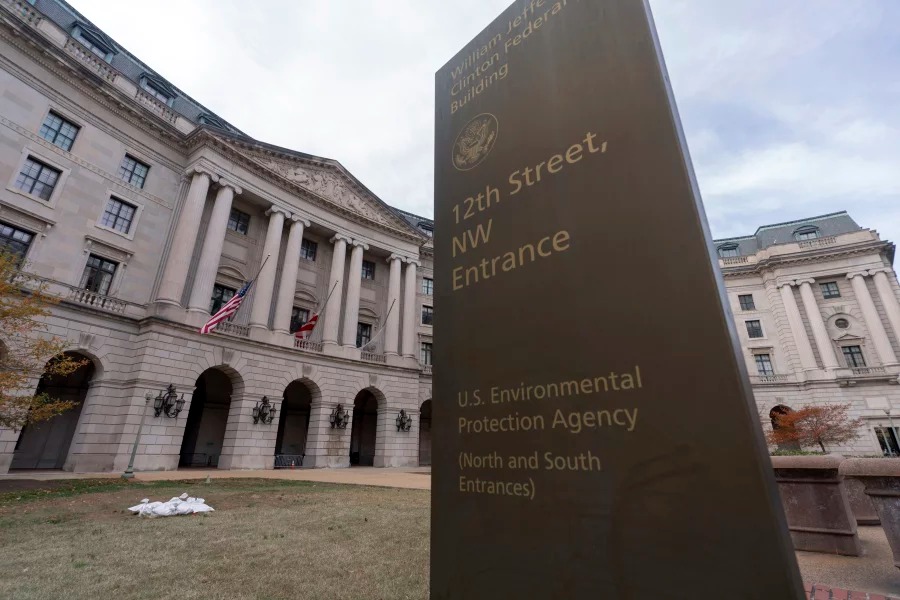
The Department of Energy posted an unusual meme — for a federal department — on the social media platform X last Thursday: A photo of a gleaming rock, center-framed, with the caption, “She’s an icon / she’s a legend / And she is the moment ”
This rock isn’t a rare diamond, a museum piece or much of a collectible. It’s a lump of coal, the mining and burning of which has caused premature deaths, rising global temperatures and smothering air pollution throughout the world.
But in 2025, coal is once again having a moment.
The social media post sparked derision in the comments. But coal mining companies say they are poised to grow as the federal government throws its support behind the industry with new laws and executive orders.
On a Tuesday quarterly earnings call this week, executives with Core Natural Resources, Inc., which owns the West Elk Mine, Colorado’s largest coal mine, said that those federal policies will “protect and support” American coal.
“We applaud the president and Congress for their leadership and foresight in taking these historic steps,” said Paul Lang, the company’s CEO.
Core Natural Resources, formerly known as Arch Resources before a January 2025 merger, also operates mines in West Virginia and the “Black Thunder” mine in Wyoming’s Powder River Basin, the most productive coal region in America.
Federal policies and spiking electricity demand may help coal
In April, President Trump signed several executive orders to increase coal production on federal lands, block state efforts to close coal power plants and grant pollution exemptions to dirty plants.
The recently enacted budget reconciliation law designated a type of coal used to make steel as a “critical mineral,” which allows companies like Core to take advantage of a tax credit.
The law also reduced the amount that companies are required to pay back to American taxpayers when they mine coal on federal property, known as the royalty rate.
“The new legislation also lowers the royalty rate on tons produced on federal lands, which in turn will reduce the cash costs and enhance the competitiveness of our Powder River Basin and West Elk operations in future periods,” Lang said during the earnings call.
But for years, the West Elk mine has been paying far less than the standard royalty rate for underground coal mining, which likely costs Colorado taxpayers millions of dollars in lost revenue.

“They have not paid the full royalty rate for as long as I can remember,” said Jeremy Nichols, a senior advocate with the Center for Biological Diversity, an environmental non-profit. While the budget law reduces the royalty rate to 7 percent for coal mining, West Elk has already been paying 5 percent, according to Nichols and a 2021 Colorado Sun report.
“So [Core], you know, is blowing hot air on the front,” Nichols said.
Electricity demand is also spiking across the United States, driven both by an explosion of A.I. data centers and rising summer temperatures, which keep power-hungry ACs running. Climate-fueled extreme heat is already straining electric grids — demand for electricity hit a record high in July, according to federal data.
Core executives see these trends as good for their business, especially when coupled with the Trump administration’s push to keep aging coal plants open. The head of Colorado Springs Utilities is pushing to keep the city’s coal-fired power plant open past 2030, the state’s legally mandated deadline to close Colorado’s remaining coal plants.
Coal remains an expensive and dirty fuel
Despite increasing electricity demand, coal is often an expensive energy source.
A 2023 report by Energy Innovation Policy and Technology, a non-partisan think tank, found that 99 percent of America’s existing coal plants cost more to run than just replacing them with new solar, wind or battery projects.
A June report from the same firm found that most U.S. coal plants saw their operating costs rise faster than inflation between 2021 to 2024.
“Our latest analysis of coal’s costs show that by every indicator it’s losing in the marketplace,” the report read.
A July United Nations report found that 91 percent of utility-scale renewable energy projects in 2024 delivered cheaper power than even the newest, cheapest fossil fuel plants.
“The fossil fuel age is flailing and failing,” said UN Secretary-General António Guterres during a speech on July 22. “We are in the dawn of a new energy era.”
West Elk is located on federal land near the West Elk Wilderness Area. Although the mine’s output has been steadily declining, it still produced more than 3 million tons of coal last year, according to federal data.
But West Elk is also a major source of noxious, smog-forming pollution and methane, a potent plant-warming greenhouse gas. In 2024, the U.S. Environmental Protection Agency said the mine’s air pollution permit, issued by Colorado, wasn’t strong enough to meet Clean Air Act requirements.
“For many years, the West Elk mine was actually one of the largest emitters of methane gases in Colorado,” Nichols said.
The state has since updated the mine’s permit to make it much stronger, Nichols said.
Quarterly results weren’t all rosy for the company. The company is dealing with insurance claims after a fire in one of its mines, and the 2024 collapse of the Francis Scott Key bridge in Baltimore, which has delayed coal shipments.
| This story is part of a collection tracking the impacts of President Donald Trump’s second administration on the lives of everyday Coloradans. Since taking office, Trump has overhauled nearly every aspect of the federal government; journalists from CPR News, KRCC and Denverite are staying on top of what that means for you. Read more here. |









